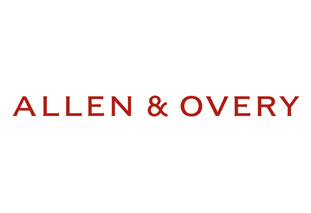Are you looking to diversify your investment portfolio beyond traditional stocks and bonds? Alternative investments can offer unique opportunities for increased returns and reduced risk. However, with so many platforms available, it can be overwhelming to choose the best one for your needs.
In recent years, alternative investment platforms have gained popularity among investors seeking higher yields and new asset classes. These platforms provide access to investments such as real estate, peer-to-peer lending, and venture capital, offering a way to build a diversified portfolio outside of the stock market.
Finding the right alternative investment platform is crucial for maximizing your returns and managing risk. With so many options available, it’s important to do your research and choose a platform that aligns with your investment goals and risk tolerance. This article explores some of the best alternative investment platforms to help you make an informed decision.
Quick Look: Best Alt Invest Platforms
Best Alternative Investing Platforms
One of the miracles of the internet is how much smaller it has made the world of investing. Before the internet, if you wanted to make an alternative investment in wine or art, you’d have to have a wine cellar or warehouse to store it in. Then you’d have to arrange security and insurance for the investments. It would literally be a full-time job.
But thanks to the internet, there are now dozens of alternative investment platforms where you can pick and choose what to invest in while someone else does the heavy lifting. Here are some of the top alternative platforms.
Best for Diverse Range of Offerings: Yieldstreet
Yieldstreet offers an all-in-one alternative investment platform with offerings for non-accredited investors as well as offerings available to accredited investors only. Yieldstreet regularly has new investment opportunities available, ranging from commercial real estate, art equity funds, structured notes, portfolios of consumer debt and many others.
Even if you’re not quite ready to jump into one of Yieldstreet’s offerings, it’s worth signing up for the platform to gain access to the many webinars and educational content available to learn the ins and outs of various types of alternative investments.
- You can choose from several options on this platform
- You can diversify without opening multiple accounts
- You may not feel like the offerings in your preferred category are robust enough
Best for Fractional Real Estate: Arrived Homes
Arrived Homes is one of the newest and fastest growing crowdfunding platforms on the internet. The company allows non-accredited investors to buy shares in carefully selected rental properties.
The minimum investment is only $100, making it easy to start earning passive income from property investments and to diversify across multiple properties. Investors simply collect quarterly dividends from their properties while waiting for the asset to increase in value over time. Arrived Homes takes care of finding tenants as well as all of the management
- Non-accredited investors can access a marketplace that can be extremely difficult to enter, especially when properties are so expensive
- There’s no need to manage these properties because Arrived is doing the work for you
- You can start small and grow your investment at your own pace
- You may feel as though you don’t have as much information on some of these properties as you might like, giving you a less “hands on” feeling
Best for Art: Masterworks
This alternative investment platform is based on fine art. It identifies select artists and buys works, which are then registered with the Securities and Exchange Commission (SEC) as a regulation A share offering. Investors will then share in the profits when the artwork they’ve invested in is sold.
Masterworks features works from famous artists both living and dead. In fact, it even has works by Banksy — the pseudonym of the England-based Street artist. This is, however, a long-term investment. Unlike investment real estate, there is no residual income generated by Masterworks investments, and investors must be willing to wait for several years before earning a dividend.
- Art is an excellent long-term investment
- Allows you to invest in blue-chip art
- Clean, attractive, easy to use platform design
- Supports Mobile App
- You may prefer to invest in art you physically own and display
Best for Real Estate Crowdfunding: CrowdStreet
CrowdStreet is a real estate crowdfunding platform that offers investors the chance to purchase equity shares in various real estate investments around the country. It’s a great way to get involved in property investing, but you must be an accredited investor to buy into any CrowdStreet offerings. That means only investors who pass a certain net worth threshold are eligible.
If you are accredited, CrowdStreet offers some great investment opportunities with the potential for very high returns. The downside is that the minimum buy-ins are on the high side, and most CrowdStreet investments don’t pay dividends for several years.
- You can invest in properties across the country in one place
- CrowdStreet allows you to look into different types of properties and decide what might be best for you
- Only accredited investors are allowed, meaning some investors will be left out
Best for Trading Ideas: Public.com
If you want to diversify your portfolio beyond stocks, ETFs, and crypto, you may be looking at alternative assets as a new investment vehicle. Public.com recently launched alternative assets on their platform—meaning you can now invest in art, collectibles, and more right from their app.
You can use the interactive interface to learn more about each asset you choose before buying, and you can track the movement of each asset so that you know your investments are truly performing.
If you’re not sure what to buy or when to sell, you can check out the social feed to learn what other traders are doing. Perhaps they’ll lend you some inspiration.
Plus, there’s a massive educational section where you can learn all about alternative assets and how they should fit into your portfolio. All of this happens on your mobile phone or tablet and you don’t need any investing experience to get started.
- This platform is designed to help you learn and invest slowly, over time
- You can access alternative investments where some other platforms do not offer this option
- Public.com may seem too simplistic for some investors
Best for Non-Accredited Investors: Cityfunds by Nada
When you invest in Cityfunds by Nada, you can invest in a piece of a city for as little as $250. Anyone can buy into the program at any time with this small minimum deposit, and you are putting your stake into a piece of a city.
The firm invests in residential properties in a particular market, especially high-demand markets like Miami, Dallas and Austin. You can also buy and sell your shares in these cities like stocks so that you aren’t relying on a particular development to see a return.
In short, Cityfunds by Nada combines what you love about ETFs with what is the largest asset class in the world. Plus, you can get yourself on the waitlist for the Nada Card, a debit card that will allow you to earn rewards that you can invest further in your real estate portfolio.
- This platform helps you focus on specific cities that may interest you
- You can diversify within the platform by investing in multiple cities
- Some investors may feel like residential real estate investing is not as lucrative as other sectors
Best for Real Estate Notes: Groundfloor
Groundfloor is an alternative real estate investing platform that offers investments in high-yield, short-term property loans. The platform is open to non-accredited investors and private individuals looking for active real estate alternative investment. Groundfloor has great volume with an average of 50-70 investments available at any given time..
Individuals with small portfolios will also like the low $10 minimum and 0 investor fees. The low minimum investment allows investors to easily diversify their Groundfloor portfolio across multiple loan offerings.
- This platform allows you to get into the real estate market in new and interesting ways
- The super-low minimum is perfect for new investors
- The range of investments, while impressive, may confuse novice investors
Best for Wine and Whiskey: Vinovest
Vinovest is a platform that’s breaking down barriers of the once gatekept world of wine and whiskey investments. They make investing in these assets accessible by providing fully-managed portfolios guided by AI and industry experts.
Vinovest manages the entire wine or whiskey investment process, including selecting, acquiring, insuring, securing and storing bottles and casks. Investors can track their wine portfolio online and request shipments or whiskey bottling once maturity is reached. The platform combines expertise from sommeliers, distillers, wine directors, and industry leaders. The goal is to provide investors with access to fine wine and whiskey investments for potential returns and diversification.
- Open to all investors (accredited and non-accredited)
- Wine and whiskey prices have low correlation with traditional markets
- Learn from wine and spirits experts and tech leaders
- Fully-managed portfolios
- Wine and whiskey is insured, authenticated, stored and more
- Track record of successful wine and whiskey exits
- Minimal information on how portfolios are constructed
- Selling a wine portfolio takes several weeks to liquidate. You can’t liquidate your whiskey early (typical hold time is 2-5 years)
Best for Employers and Employees: EquityBee
EquityBee is an excellent alternative investment platform, providing investors with access to startups and growing firms. At the same time, startups and companies with big ideas can access retail investors through EquityBee—broadening their reach.
Employees can use the platform to push their stock options back into the firm and take part in its future success.
Investors can use EquityBee to diversify their investments, gain access to companies that have no IPO’d or even make their first investments in the private sector.
By funding employee stock options, EquityBee makes it possible to serve both team members and investors. With a minimum investment of $10,000, EquityBee allows you to get in on the ground level today.
- You can invest in a whole new part of a business that most people forget about
- The minimum is relatively low considering the nature of the investment
- You may not want to invest in something other than employee stock options
- Employee stock option investments can get complicated
Best for Accredited Energy Investors: Energia
In its simplest form, Energia allows accredited investors to purchase fractional shares in oil and gas wells that are thoroughly vetted to offer the best chance of success and profitability. Energia partners with sponsors who help purchase these assets and maintain their value. Plus, Energia allows you to learn more about energy investing, shows you all the information you need to see about each asset and uses AI, machine learning and advanced analytics to select only the best offerings. Think of Energia as the perfect intersection of real estate and exposure to energy prices.
- Energia works diligently to build offerings that are appropriate for investors
- You get support submitting your accreditation documents
- The customer service team is both responsive and knowledgeable
- Energy assets such as these may not serve as a hedge against economic turmoil
What is an Alternative Investment?
Any investment you make in something outside of stocks and bonds is considered an alternative investment. It may sound exotic but in reality, people have been making alternative investments for a long time. Historically, real estate and gold are two of the most popular alternative investments. You can diversify your portfolio by making alternative investments as supplements to your stocks and bonds, or you can have a portfolio that consists entirely of different alternative investments.
Types of Alternative Investments
As discussed in the section above, real estate and gold are two of the most commonly held alternative investments. With that said, there is a multitude of alternative investments you can make. Here are some of the most popular options:
- Rental or investment properties
- Precious metals (gold, silver, platinum)
- Cryptocurrencies like Bitcoin or Dogecoin
- Non-fungible tokens (NFTs)
- Startups
- Collectibles such as baseball cards, historical items and rare jewelry
- Wine
- Art
Diversify With Preferred Alternative Investments
Alternative investments may sound like a fancy, New Age concept, but that’s far from the truth. In fact, if you own property, you have already made an alternative investment. Many people who see the wisdom of investing, but are put off by the volatility of the stock market, have been gravitating toward alternative investments for quite some time. With that said, it’s important to remember that there is an incredible variety of alternative investments outside of real property or even gold. The rise of internet-based alternative investment platforms has opened up a whole new world to potential investors.
Now you can buy shares of startup companies, wine futures and even sports collectibles as alternative investments. Some have high payoffs and an elevated risk level, while others may require investor accreditation and the ability to wait a long time before earning a dividend.
Other alternative investments have an active secondary market that allows you to liquidate your shares quickly. The variety is nearly limitless. Alternative investments can be a great way to diversify your portfolio, but you still must consider the risks and choose wisely. As always, Benzinga is a great place to go for neutral information on all the pluses and minuses.
Frequently Asked Questions
A
Some of the fastest growing alternative investments include cryptocurrency, peer-to-peer lending, real estate crowdfunding and renewable energy projects. These investments have seen significant growth due to their potential for high returns and diversification benefits.
A
Some of the best alternative investments include real estate, cryptocurrencies, precious metals, peer-to-peer lending and art. These can provide diversification for a portfolio and potential for higher returns compared to traditional investments.
A
Yes, alternative investments can be profitable, but they generate profit in different ways. For example, real estate may generate steady income while wine, watches and collectibles may only generate income when they are sold.







